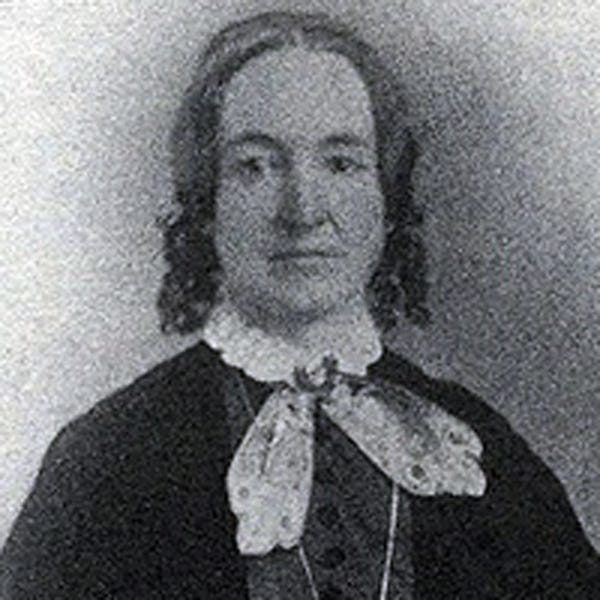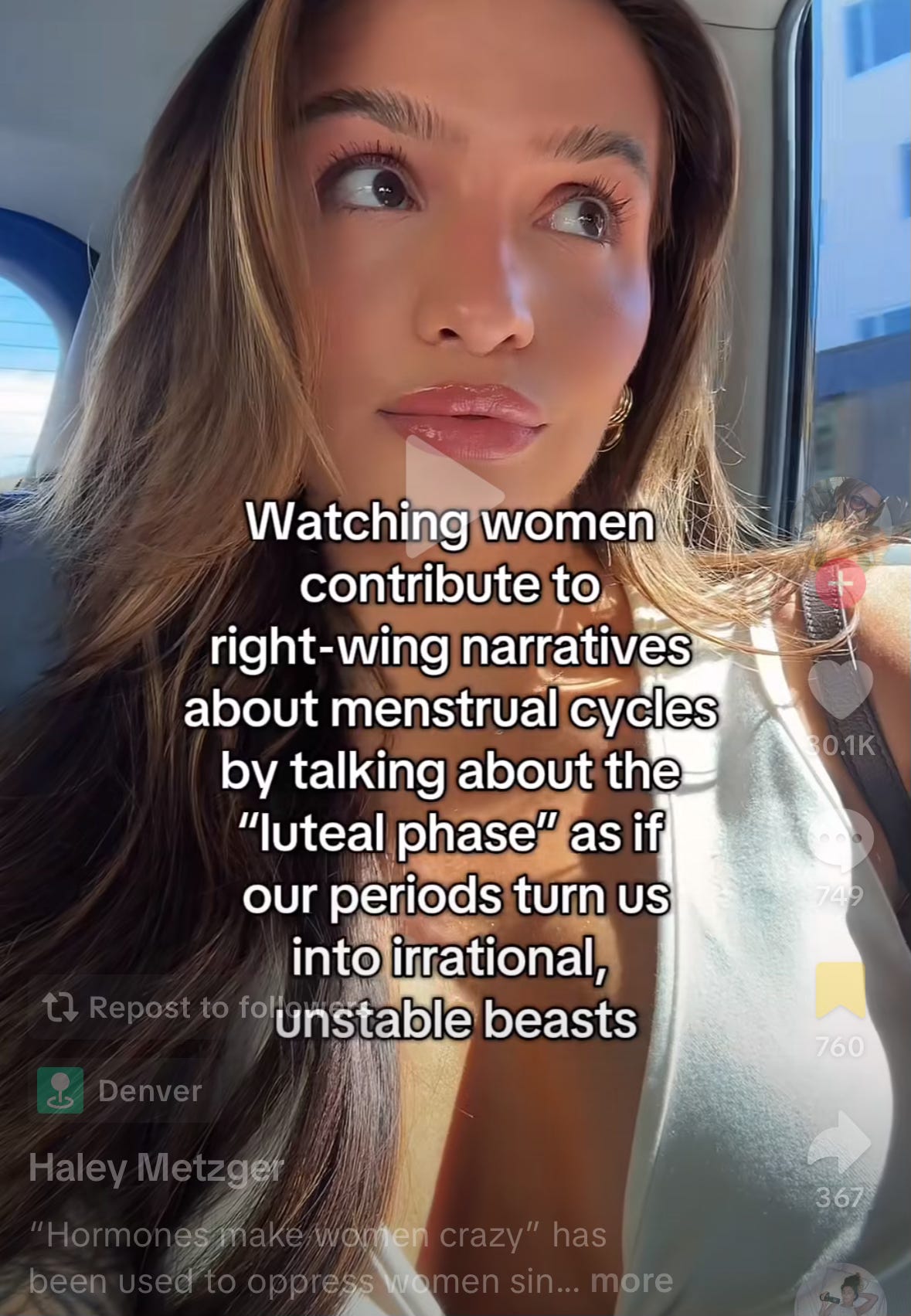show notes
Hey bestie! Welcome back to powerhouse of the celle, where longevity, belief, and femininity intersect to help us lead longer, healthier, and more intentional lives. On today's edition, we are talking about how women's biology and conversations around women's biology have been weaponized and ignored, and how the hormones, the body signals that shape our monthly rhythms have been used to diagnose, discredit and shame us.
We are diving into the dark history of hysteria, the realities of women's luteal phase, and why understanding our hormonal patterns and accepting that we do follow a pattern is not weakness but rather, power. We'll also explore the double standard that pathologizes women's emotions while excusing male aggression and never questioning that and accepting that as a fact, when in reality men are also affected by their hormones.
And color me shocked when I find out about the irritable male syndrome, and how it is a manifestation of how men's hormones really do affect their mood and behavior.
All of this we talk about to drive home this point: that we need to be a lot more comfortable talking about our bodies, our wellness, our hormones, our health so we may get to know ourselves, accept ourselves and embody ourselves better.
Elizabeth Packard
In 1860, Elizabeth Packard kissed her children goodnight for the last time. She didn't know she wouldn't be allowed to see them again for three long years. The next morning, she was dragged from her home and locked away in an insane asylum. The reason? her husband didn't like her opinions. She was too curious, too outspoken for the world she lived in, and in 19th century America, that was all it took to be declared hysterical.
But here's the thing: Elizabeth wasn't mentally ill. She was a minister's wife who questioned religious dogma. She challenged the authority of men and insisted on her right to speak in public forums. So her husband Theophilus used the law to silence her. No trial, no evidence. Just a man's word against a woman. And under Illinois law at the time, a husband could commit his wife to an asylum with nothing more than a doctor's note and his own word.
While in the asylum, Elizabeth witnessed the brokenness of the system. Women were locked away for reading too much, for crying too often, for resisting their husbands advances. She spent three long years trapped inside the Illinois hospital for the insane, fighting every day to prove that she was sane. And in the spring of 1863, the doctors finally gave up. Officially, they claimed that she was incurably insane and needed to be released to make room for patients with hope. The truth. They were tired of her. They were tired of her campaigning to get out of there. And also her grown children were rallying for her freedom.
Elizabeth was released but then her husband took that as an opportunity to lock her inside their home. Fortunately, Elizabeth smuggled out a letter to a friend, and that friend appealed to Judge Charles Starr who then demanded Theophilus to bring his wife Elizabeth before the court. Theophilus defended his actions, insisting that he had given her all the liberty compatible with her welfare and safety.
But even in 19th century America, there were limits. It was legal to commit a wife to an asylum without a trial but it was not legal to turn your home into an asylum. Judge Starr ordered a public jury trial, and Elizabeth's supporters included her friends and her neighbors. One doctor/theologian explained that many intellectuals in Europe shared Packard's religious beliefs, implying that Elizabeth was simply ahead of her time in 19th century Illinois. And after seven minutes of deliberation, the jury found Packard to be sane and declared her a free woman, but her story doesn't end there.
Elizabeth lobbied relentlessly in state after state, and she won. In 1867, Illinois passed the first law requiring a public trial before a woman could be committed to an asylum by her husband. This was unprecedented. For the first time, women had legal protection against wrongful institutionalization.
And her work didn't stop there. She was on a mission.
She helped establish the National Society for the protection of the insane and the Prevention of Insanity, and pushed for independent psychiatric evaluations, better asylum conditions, and legal rights for those already institutionalized. She testified before Congress. She wrote over ten books, all while being dismissed as unbalanced by the very institutions that she was reforming.
And because of Elizabeth Packard, multiple states reformed their commitment laws. Her case helped spark the first conversations around women, civil liberties, bodily autonomy, and the rights of the mentally ill. She wasn't just fighting for herself, she was fighting for every woman whose voice had ever been labeled crazy.
And the echoes of her fight are still with us: every time we speak out against medical gaslighting, every time we demand informed consent, every time we refuse to be silenced, every time we talk to our girlfriends about our health, every time we post about it online, we are continuing her legacy.
She was literally thrown into an asylum for having different thoughts—thoughts that if they weren’t verified by a man as having been progressive for her time, landed her into an asylum. And obviously much has changed, but the echoes of 1800s policing of women's thoughts and women's bodies and women's freedom still affects us to this day.
Today, women still tiptoe around the truths of their own bodies. We make jokes about our irritability, our cravings. We pretend that we're just being dramatic. We pretend that it's some magic that we need to gatekeeping, but the truth is: it is just regular, normal female physiology.
Talking about our health, our cycles and how our cycles affect us, that's not a weakness. That is reclamation.
Elizabeth Packard didn't endure isolation or institutional harm so that we could continue censoring ourselves for the comfort of those who would rather not hear the truth, for fear that these biological observations will be used to medicalized us or legislate against us.
We are so past that now.
And for that reason, I will never shut up about women's hormones.
luteal phase discourse
When you type luteal phase on social media, you get a bunch of videos of women showing their glow downs, examples of irrational behavior, low energy behavior. The general sentiment is that the luteal phase is not their favorite phase.
I came across this TikTok with this caption,
We've already done a big class on cycle syncing and being more in tune with your cycle as a woman, so read it if you missed it here. In that class, we talked about how just because some topics are commonly misunderstood and misinterpreted to serve the agenda of people seeking to discredit women and harm women, it doesn't mean that we should stop talking about these topics especially when these topics have such a huge effect on women's lives.
And honestly, we're done tiptoeing around No Nuance Nellies. Were done tiptoeing around malicious people who bend all of these findings and observation points to suit them. Just because people use the biological fact that women experience emotional and physical changes at different points in their cycle, doesn't mean that we, as women should stop learning about our cycles. There's still so much we don't know about the female body thanks to centuries of exclusion from scientific research. And now we're not supposed to talk about it at all?
Give me a break.
Who does that serve? Who does women's silence serve? When will we stop tiptoeing around people who cannot overcome their base desires?






